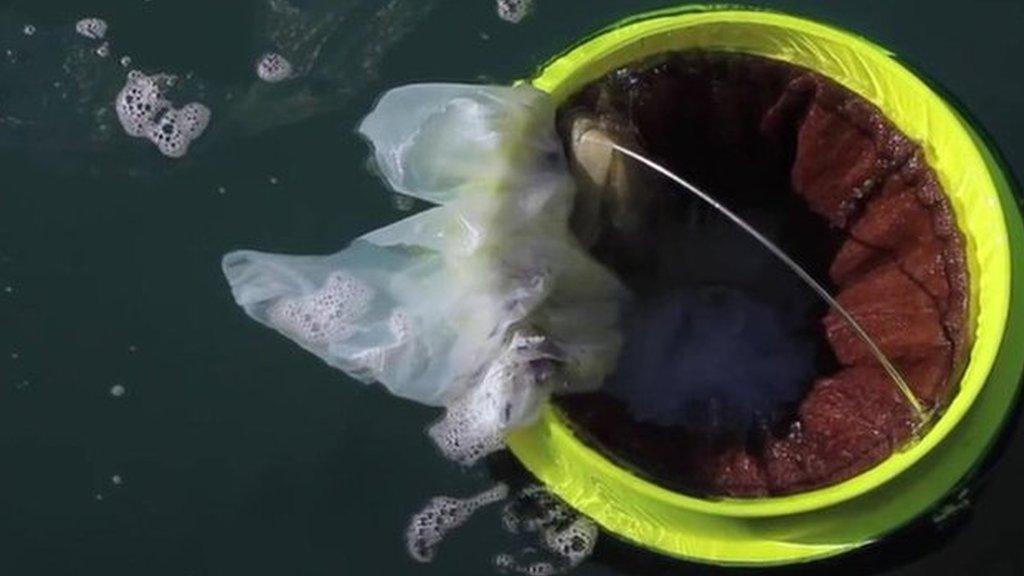NI's first floating bin installed to trap marine plastic
- Published
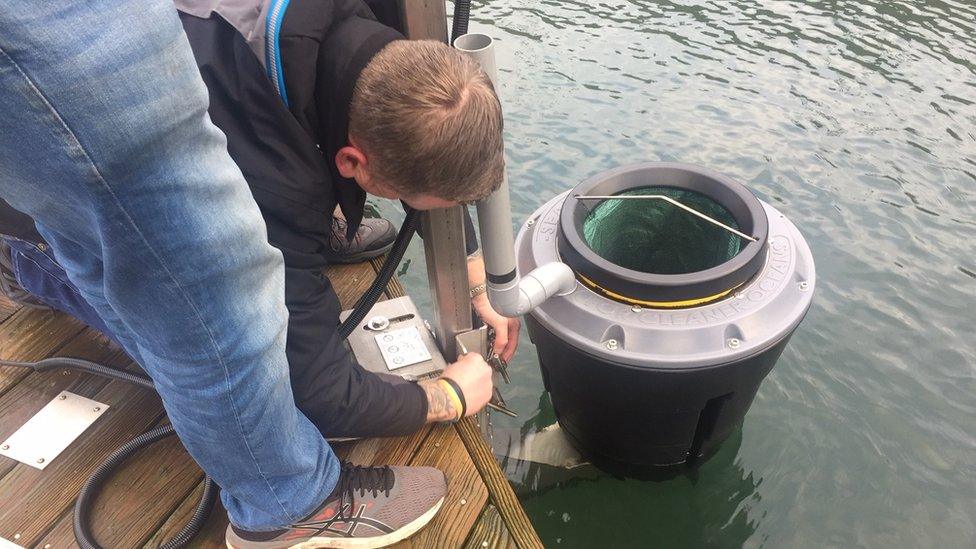
The sea bin is fixed into position
The first sea bin designed to trap marine plastics has been installed in Northern Ireland.
It went in at Bangor Marina yesterday having been bought by the council and will run for a three-month trial period.
The equipment can sieve two million litres of sea water a year.
It traps even tiny bits of plastic in an inner mesh which is then removed and emptied regularly.
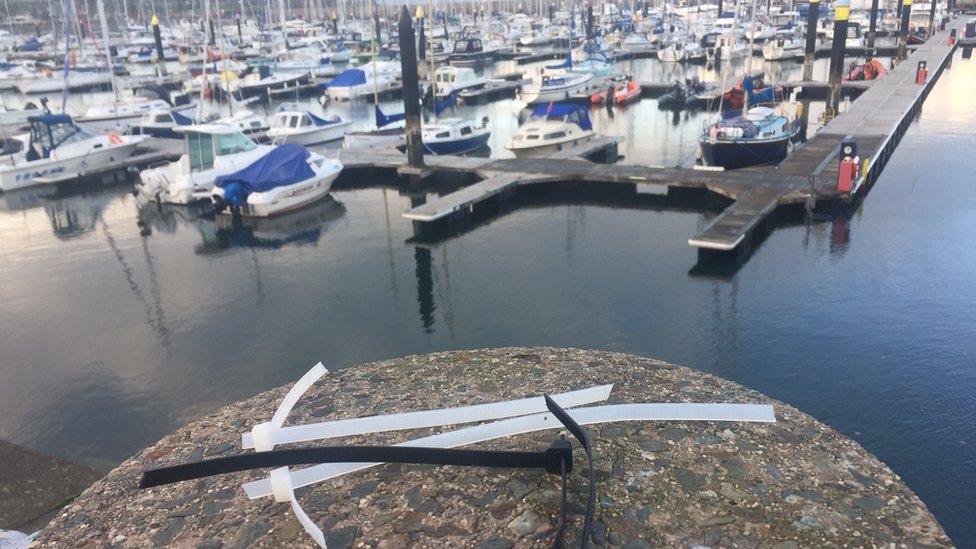
Single use plastics like these cable ties can easily blow into the marina
Concern over the global problem of marine plastic was brought into sharp focus by the BBC's Blue Planet programme.
It revealed the huge amounts of marine plastic and the impact on sea life and ecosystems.
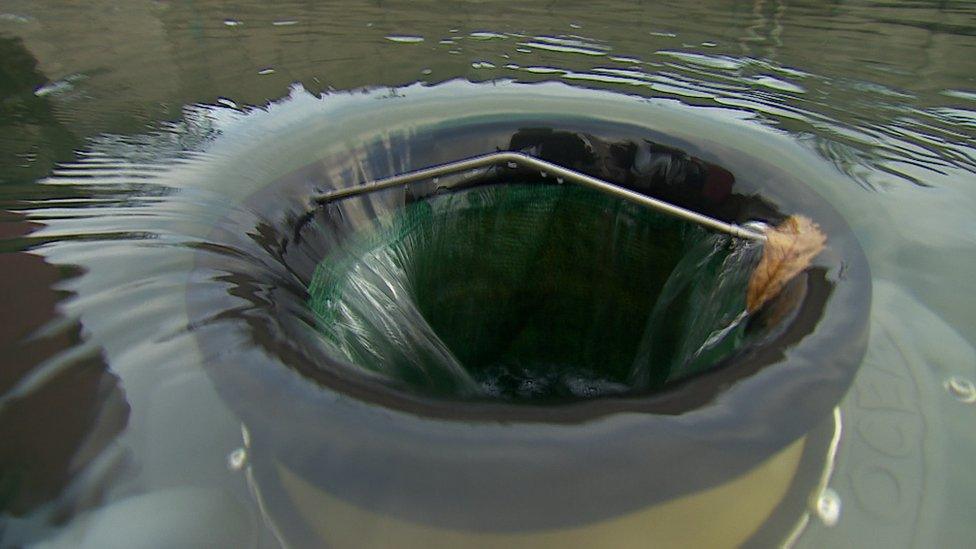
The equipment rises and falls with the tide, straining hundreds of litres of sea water
Ards and North Down Council has bought three sea bins, and plans a further seven if the trial proves its worth.
The sea bin has been fixed to the pontoons in the marina.
It's been placed opposite the outflow from the local river which flows into the harbour.
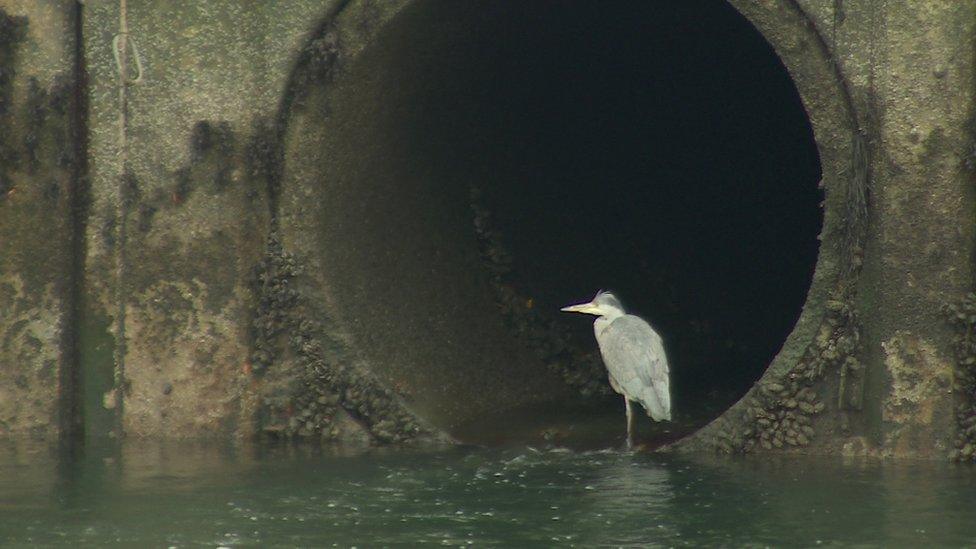
The local river flows into the marina
The river carries rubbish into the harbour and litter will also blow into the marina from the adjoining promenade.
The sea bins cost about £3,500 each and using a low energy motor they can be run for about a pound a day.
Each can capture three tons of litter a year and 70 per cent of each unit is made of recyclable plastic.
More than a third of marine litter comes directly from the public and half the plastic we use is single use.
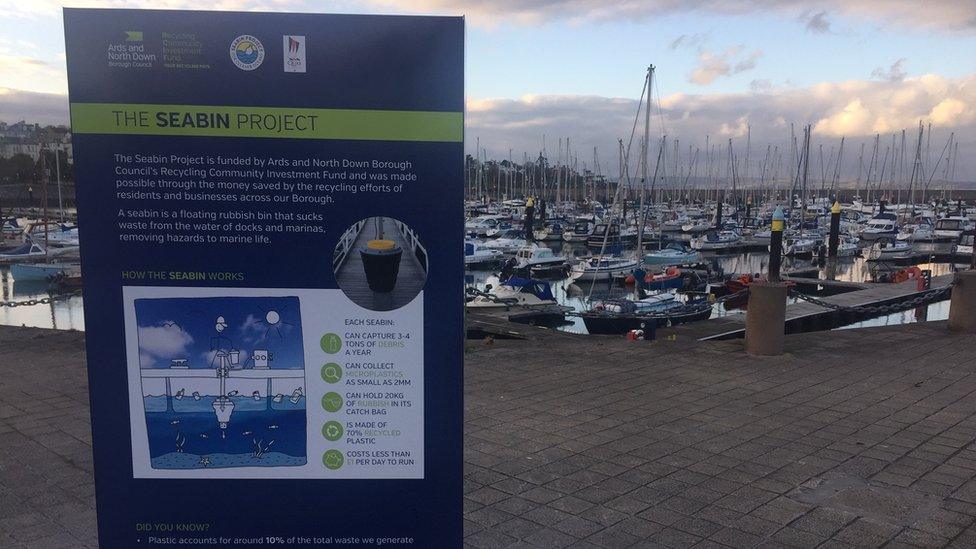
The public is being educated about the challenge
An information board has been erected at the marina close to the where the sea bin is operating.
Stephen Addy from the council said the fact that unit could also take out micro-plastics was probably the most significant thing.
"That's what's harming our wildlife and ending up in our food-chain," he said.
He accepted that the sea-bins were a small step to address a huge problem but said educating the public was a key part of "turning the tide of plastic in our seas".
- Published19 January 2016
